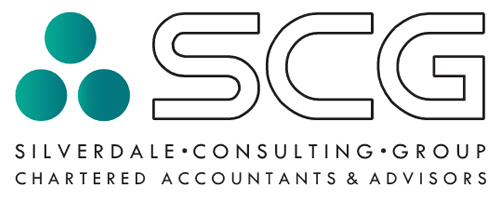For many small business owners, staying on top of finances can feel daunting, overwhelming and difficult. However, the truth that every small business owner must face is that accurate accounting is absolutely necessary for the success of any business. Getting started is less nerve-wracking when you know a few industry hints and guidelines, too! That’s why today, we are sharing some insider tips and tricks for small business accounting that every small business owner should know.
#1: Open a business bank account
Creating separate bank accounts is essential for keeping track of both personal and business finance. Some business owners (including those of LLCs, partnerships and corporations) are actually legally required to have separate accounts.
While sole proprietors are not legally obligated to keep accounts separate, doing so has a number of benefits:
- It makes tax time easier (especially when it comes to items that are tax-deductible)
- Tracking money is simpler with separate accounts.
#2: Track all business expenditure
Recording business expenditure is a key component of small business accounting because it contributes directly to preparing tax returns and accounting for deductible items, as well as providing evidence for those tax returns and items, and building important financial statements.
You can track your business expenditure through a number of documents, including payment summaries, expense claim invoices, dividend statements and receipts.
#3: Keep all your receipts
As a small business owner, it is incredibly important to keep all receipts as a way to record business expenditure and credits. You should form a filing system for these receipts so that they are easily findable and accessible.
Keeping receipts is also necessary if you plan to deduct any items at tax time. According to the ATO, these items are tax-deductible:
- Vehicle and travel expenses for work
- Mobile phones, internet and landline expenses
- Home office expenses
- Tools and equipment
- Any other work-related deductions.
#4: Understand your tax obligations
Certain types of businesses will be subject to different tax obligations. For example, if you are a sole proprietorship, you need to claim business income on your personal tax return. However, this is not the case for corporations. To find out what kind of tax will apply to you, you should enlist a tax accountant to assist with your finances.
There are also a few other types of tax you may need to consider:
- Import tax
- Sales tax (We recommend that you collect taxes at the time of sale to avoid confusion or a large lump sum at the end of the financial year).
#5: Create Profit and Loss (P&L) statements
A profit and loss statement (also known as an income statement) is a document that is prepared monthly, quarterly or yearly. It details your expenses and revenues with specific dates and is extremely useful for developing new sales targets and product prices.
#6: Learn how to invoice accurately
Invoices are similar to receipts: they record details about transactions – particularly those between your business and your clients or suppliers. Not only do invoices prompt clients to make timely payments, but they also help you keep track of their payment habits.
For transactions under $1000, invoices should clearly detail:
- Your seller/business identity
- Your ABN or ACN
- The date that the invoice was created
- A list of the items sold, their quantity, and price
- GST payable (if any), and the extent to which each item sold includes GST.
#7: Keep on top of labour costs
It’s easy to note material or operating costs for your business, but have you thought about labour costs (including those for yourself)? Aside from pay, you must also take into consideration any leave, overtime or benefits that your employees are due to receive.
A great way to stay on top of labour costs is to set up a payroll system and keep continuous files on each employee or independent contractor you hire. Taking note of your legal obligations when it comes to paying employees will also give you guidance on how to form a pay system.
#8: Calculate your gross margins
Your gross margin represents the total revenue from sales that remains after all direct production costs have been taken out. Therefore, improving your business’ gross margin is going to enable you to improve your business income.
To calculate your gross margin, you need to know the Cost of Goods Sold (COGS), which are the costs incurred by the production of the products. This includes materials and direct labour costs.
The gross margin equation is as such:
Your gross margin (%) = (Revenue – COGS) / Revenue
#9: Get your bookkeeping in order
Accountants and bookkeepers actually offer different services. Essentially, a bookkeeper’s duty is to measure, identify and record financial transactions, while an accountant interprets and communicates these figures. For successful small business accounting, ideally you will have both accountants and bookkeepers organising your business’ finances.
Need assistance with your small business accounting?
At Silverdale Consulting Group, we understand that keeping track of your small business’ finances is not always an easy task. That is why we aim to help small business owners take control of their finances.
With over 40 years of experience in the accounting and finance industries, our accountants and advisors are well-equipped to give you the small business accounting advice that you need. This advice covers important areas of finance, including bookkeeping, tax compliance and business accounting.
For helpful accounting advice, please don’t hesitate to get in touch with our accountants and advisors today on (03) 9497 5885.

